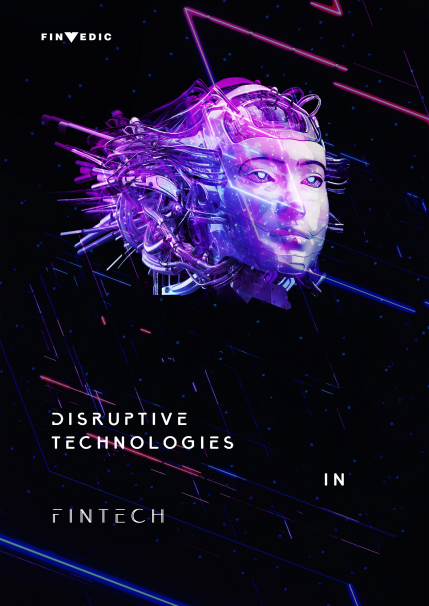What are
Disruptive
Technologies
Disruptive technologies are innovations that radically change
industries by offering new, more efficient solutions. Examples
include blockchain, AI, IoT, 3D printing, renewable energy,
biotechnology, and quantum computing.

This volume will
cover:
Introduction to
DISTRUPTIVE TECHNOLOGIES

Disruptive technologies are
primarily developed and
adopted in various sectors,
serving as catalysts for
transforming industries.

One prominent example is the
Internet of Things (IoT), which
connects various devices and
enables them to communicate
and share data.

IoT connects devices for data
exchange. Platforms like AWS,
Azure, and Google Cloud
manage connectivity, data
processing, and analytics.

Know More
Distributed Systems
Distributed fintech systems emerged in the late 20th century, leveraging networked computing to enhance financial operations and services.

Building Blocks of Distributed System
Distributed systems handle vast data and operate across multiple machines or continents, facilitating collaborative computation. Yet, their complexity poses challenges in both design and maintenance.

Domain-Driven Design (DDD)
DDD is a software development approach that prioritizes understanding the problem domain for effective solutions through collaboration between domain experts and developers.

The Fintech Landscape and Domain Complexity
Fintech's vast landscape includes banking, payments, lending, and wealth management, demanding deep understanding and strategic navigation due to complexity and regulatory challenges.

Introduction to Cloud Computing:
Cloud computing utilizes remote servers for storing, managing, and processing data, enabling flexible and scalable digital solutions.

AI and Machine Learning in Fintech
Fintech employs AI and ML for data analysis, fraud detection, risk assessment, and personalized financial services.

Understanding Blockchain Technology
Blockchain is decentralized, transparent ledger for secure, immutable transactions, eliminating intermediaries and enhancing trust in data integrity.

Disruptive Technologies

Disruptive Technologies Reshaping Investment Strategies
Disruptive technologies like AI, blockchain, and big data
analytics are revolutionizing investment strategies. AI
enables data-driven decisions and trend predictions,
while blockchain enhances transaction transparency
and security. Big data analytics offers insights from
diverse sources, empowering investors to adapt
to market dynamics. Embracing these technologies is
crucial for staying competitive and unlocking growth
opportunities in the evolving investment landscape.
Powering Electronic Trading
in
the Digital Age

In today's digital age, electronic trading reigns supreme, propelled by disruptive technologies like AI, blockchain, and big data analytics. AI algorithms swiftly analyze market data, while blockchain ensures transparent and secure transactions, reducing the need for intermediaries. Big data analytics provides valuable insights, aiding investors in making informed decisions. These technologies revolutionize electronic trading, enhancing efficiency,transparency, and empowering investors to navigate the financial markets with confidence.
Empowering Individuals:
Driving
Financial Inclusion
Disruptive technologies democratize financial inclusion, empowering individuals worldwide to access banking services, invest in assets, and achieve economic autonomy.
Moreover, Disruptive Technologies are pivotal in democratizing financial access and fostering inclusion. By granting individuals the ability to engage in diverse financial activities, such as investing in stocks and digital assets, these innovations empower economic autonomy and wealth accumulation. Additionally, Disruptive Technologies extend investment opportunities to emerging markets, catalyzing global economic expansion and prosperity.

Future Trends and Innovations

The transformative potential of disruptive technologies like AI, machine learning, and blockchain is revolutionizing investment platforms for a transparent and accessible future.
As technology advances, the potential of disruptive technologies like artificial intelligence, machine learning, and blockchain to revolutionize investment platforms is boundless. These innovations offer unprecedented opportunities to reshape the future of finance, with AI and machine learning optimizing investment strategies and blockchain ensuring transparency and security. Through ongoing innovation, disruptive technologies will continue to redefine how we invest, fueling growth and prosperity in the global financial landscape.













